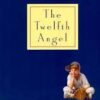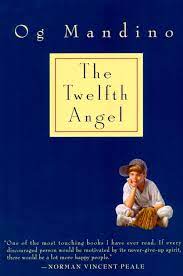- Empty cart.
- Continue Shopping
The Twelfth Angel
₦3,750.00
I don’t care how jaded and cynical you are; if you read this, you’re going to need Kleenex nearby. At the very least, you’re going to need to know where it is just in case.
I loved this book because it brought back memories of what America was like when its citizenry disagreed without hating one another. It will remind you that we once had a tradition here of coming together for seemingly unimportant things like Little League games—things that only seem unimportant to those who never knew what it was like for diverse people to unify under a hometown banner of pride.
John Harding, his devoted wife, and their seven-year-old son have come home to John’s birthplace in New Hampshire. John is the hometown kid who made it big in the world and moved back. He was destined for a sparkling career in baseball’s major leagues, but some knee cartilage damage prematurely ended that. He focused on computers, and now he’s home to run a software company headquartered in nearby Concord. They gave him the key to the city; they gave him a welcome home party; and a few weeks later, someone in a pickup truck gave him a reason to kill himself. His wife and son die in a car crash, and suddenly John’s life full of promise and brighter tomorrows is full of emptiness, grief, and echoes of what once was.
He takes a leave of absence from his new job, and he isolates himself in the house he had so recently bought. He remembers a gun he kept in a drawer. Suddenly, an object that had little value—he had never loaded it—becomes almost an object of seduction to him. He loads it, and he holds it to his temple.
That’s when the infernal knocking at the window begins. Whoever’s out there won’t stop. Annoyed by the persistence of the knocker, John puts down the gun and answers the door. On the outside of the door stands a high-school friend who had meant everything to John in his youth. After much conversation, the friend convinces John to take on the job of coaching a Little League team. It’s not an easy persuasion.
Eventually, John has 11 players, and he has a chance to pick one more kid. His twelfth player is Timmy. Timmy looks a lot like John’s dead son, Rik. The thing is, Timothy Noble can’t play baseball. But that doesn’t stop him from trying. The little kid has heart, and he infuses his team with a never-give-up spirit that serves it well throughout the summer.
The cynical and jaded among us will write this off as a shallow little book full of clichés. The thing is, they wouldn’t be entirely wrong. But this book just clicked with me for whatever reason. Mandino vividly describes a summer baseball field with bleachers that hold a thousand people rising for the national anthem. He describes a team ceremony in which young men take the Little League pledge promising good sportsmanship among other things. He includes the high drama of suspenseful games, and because of the writing, you are fervently rooting for the Angels. And you ultimately root for little Tim Noble. There’s likely a kid like him in nearly every Little League park in the country—single mom, tattered almost useless shoes, a glove that is so used and abused it can’t hold a ball, and a little kid who lacks talent, but whose love for the game drives him on.
My only problem with the book was the detailed descriptions of the baseball games. That’s not an inherent problem with the book; that’s a defect in me as a reader. I have no interest in the game and no understanding of how it works. I found myself fantasizing about tapping NLS narrator Gary Tipton on the shoulder and saying, “So Gary, how about skipping down to the score?” Those of you who love baseball and understand it will find the descriptions additionally valuable.
This is way short—under 200 print pages. I cranked Gary up to 3x, and he delivered the little book in about an hour and 20 minutes. It was time well spent. And aside from the preachy section on positive mental attitudes in which Mandino references the luminaries of the genre like Norman Vincent Peale, W. Clement Stone, and others, and aside from the detailed game descriptions that didn’t do much for me but will for you, this was well worth my time. It served as a reminder as to the fragile nature of life and its corresponding value. It speaks to the value of community involvement and volunteering, and above all, it tacitly reminds us of a point made by the Savior two millennia ago—that those who lose their lives in service find those lives.
The Twelfth Angel
by Og Mandino












